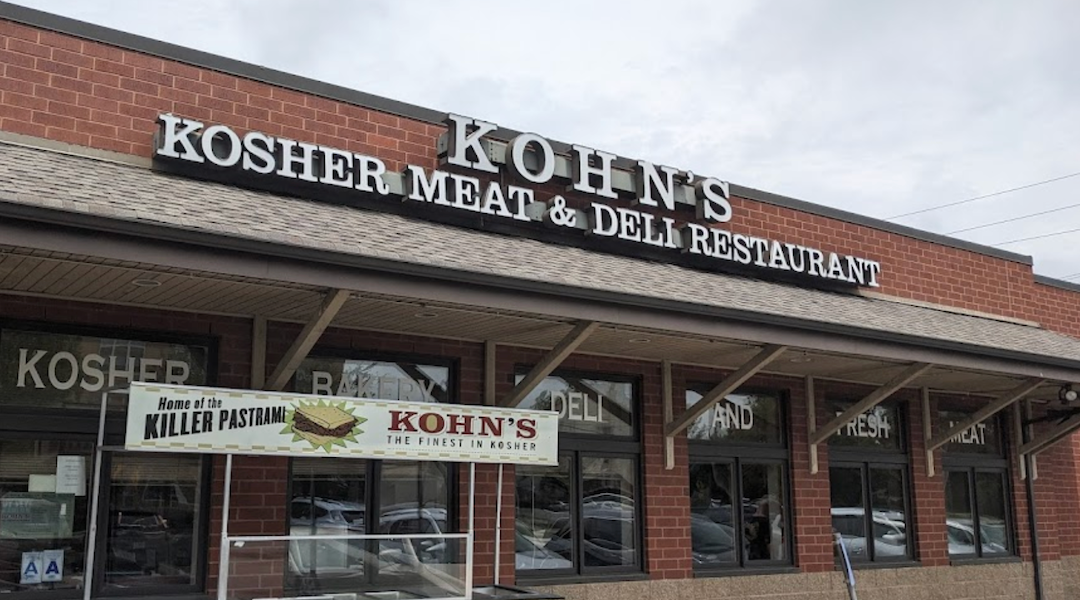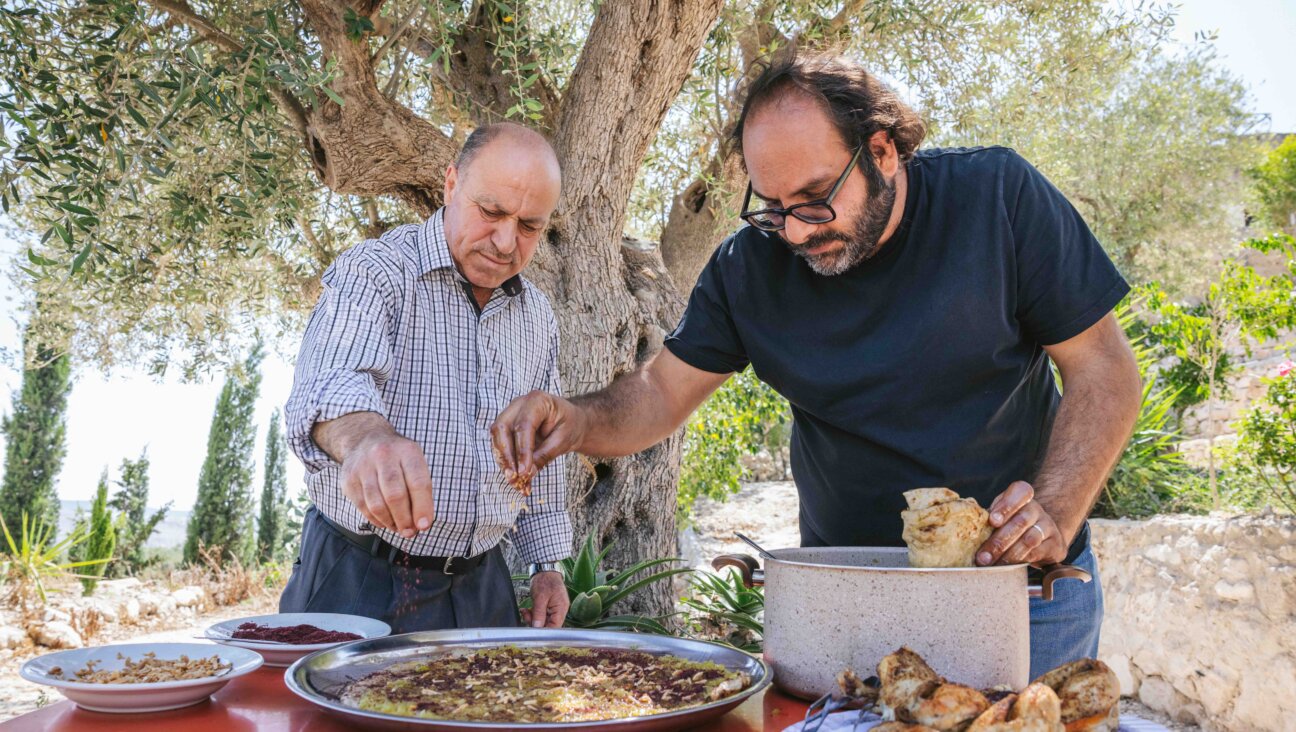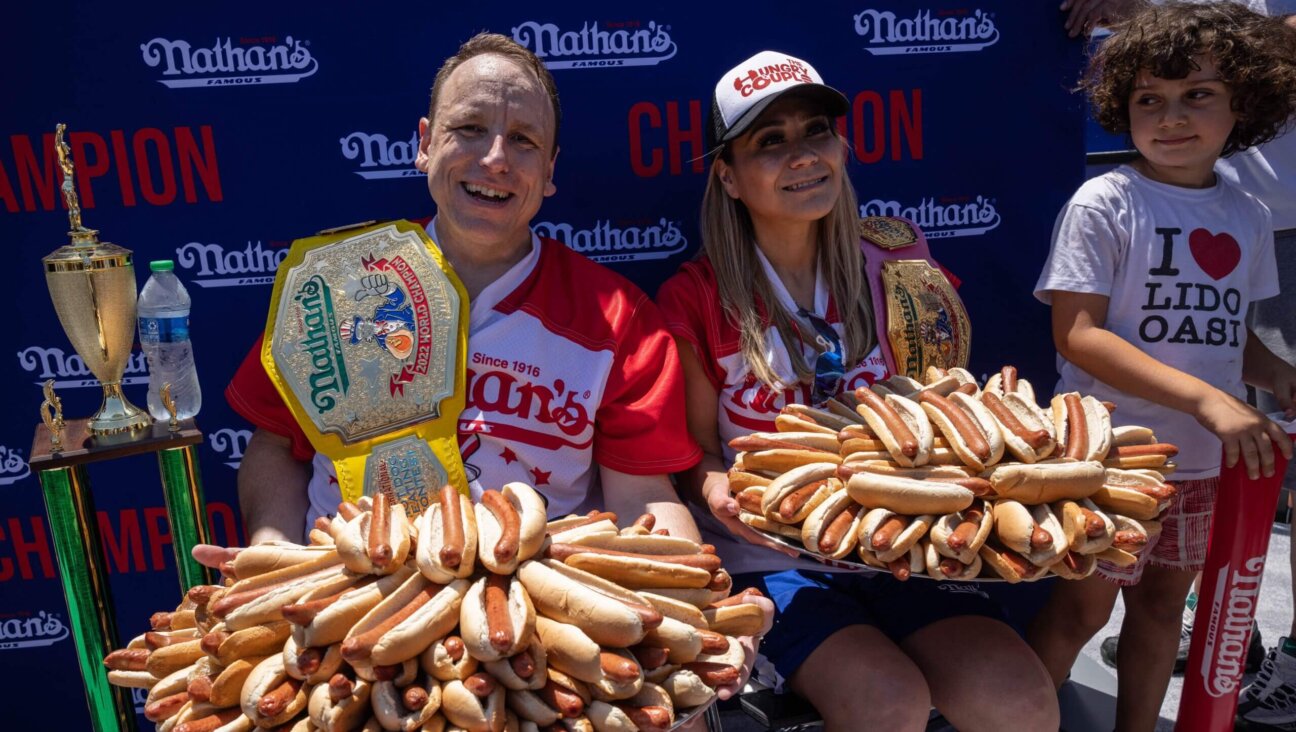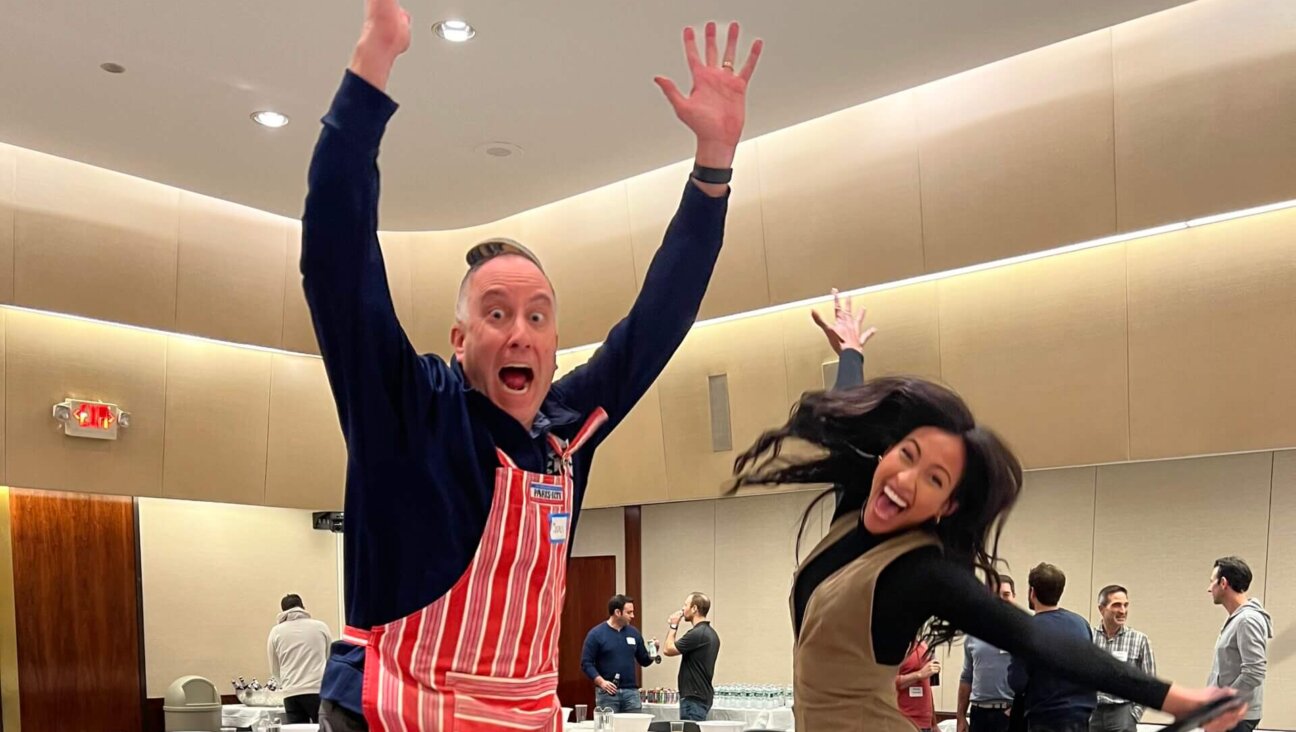Making Challah, The Jewish Miracle Bread, With A Syrian Twist

Jack Hazan makes kosher, all-natural challah that carries his family’s legacy. Image by Liza Schoenfein
Jack Hazan’s Grandma Peggy called challah “the miracle bread.” She taught him to make it in her kitchen when he was a child — she lived only a few blocks away from his yeshiva, in the Midwood neighborhood of Brooklyn. She told him that in Syria, where she and her late husband Albert were from, it was said that miracles came from the braided strands. You just had to say a blessing over the bread.
“It’s a custom where we come from, when somebody is trying to get pregnant, you make a challah and say a brokhe,” Hazan said. “When someone wants to get married, you make a challah and say a brokhe.”
“For me, challah bread represents unity, and it represents family, and it represents tradition. Because my entire life, her entire life, wherever they went they could count on challah bread being there for Friday nights on Shabbat.”

Image by Liza Schoenfein
Today, at 32, baking is Hazan’s bread and butter. In 2016 he launched Jack Bakes, making all-natural, kosher (pareve) challah based on his family’s recipe. Packaged in a clear bag with a logo that highlights Hazan’s dark beard but leaves out his strong eyebrows and soulful eyes, it’s sold nationally through online retailer Jet.com and at numerous stores in New York.
“The only connection I have to Syria, to my origin, is my dark features and the food,” Hazan said. “The dinners, the recipes, the laws and the customs, but mostly the food that we cook, the recipes that were passed down from generation to generation.”
When she was young, Grandma Peggy would bake with her mother and her mother’s mother, Hazan said. She didn’t have a recipe book, and learned to cook by watching. There were no measuring cups or spoons. “They used a glass,” Hazan said. “I know how to make this bulgur-ground-beef thing: It’s one glass of bulgur, a quarter of a glass of oil, two glasses of water… It was all about the glass.”
Grandma Peggy died in 2006, and shiva concluded on a Friday. “You know what we did to commemorate her?” Hazan asked. “We all made a big Shabbat meal using her recipes. It was really the most healing. That really created this connection with her and us.”
After he finished school, Hazan went to work for his father, in “the shmate business.” He was miserable. “I wasn’t invested in it…The highlight of my day was coming home from work to bake in my kitchen with a busted oven.” What made his challah different from others he’d tried was the ”authentic challah taste.”
“Who else’s challah follows a recipe from four or five generations?” he asked. “My challah carries a legacy.”
He baked for friends and co-workers, bringing a loaf of his challah with him pretty much wherever he went. Much to his father’s chagrin, he began studying Kabbalah, and would go to the Kabbalah Center for Shabbat dinners. Rather than eating the store-bought challah he was presented with, which he couldn’t stand, he would bring his own and share it with the people at his table. One happened to be Lourdes Leon, the daughter of Madonna.
“So I would be seated at a table with her daughter, who went crazy for my bread,” Hazan said. Madonna was at a different table that included Jason Bauer, who founded Crumbs bakery with his wife Mia Bauer. Madonna tried Hazan’s challah, and asked if he could make her one as well. “And I would hand it to her, and she said, ‘I love the bread from Eyebrows.’ ” She called him Eyebrows for reasons that are clear as soon as you see his face.
Jason Bauer encouraged Hazan to go into business, and said that when Hazan was ready he would help set him up with bakers and a space in an industrial kosher bakery.

Image by Liza Schoenfein
A friend and neighbor in Hazan’s building helped brand the business, and came up with the name “Jack Bakes.” Hazan had the graphic design team at his father’s company make him labels. Home at night, his best friend helped him tie the bags and stick the labels on. Another friend, Tracy Stern, who’d owned a company called Salon Tea, helped him with the business side.
Meanwhile, things were not going well at work, and one day Hazan’s father called him into his office. “He said, ‘Listen, I’m doing you a disservice because you don’t want to be here, and it’s not good for me. This isn’t your passion. Go out there and figure something out, because this isn’t it.’” It took Hazan some time to realize his father was doing him a favor.
Hazan went to graduate school, and ended up earning a degree in counseling psychology at NYU’s Steinhardt School. During that period, he sold his challah to make a little money.
One night, he found himself at dinner with an ex-boyfriend and that ex’s new boyfriend, who happened to be in marketing. The new guy asked Hazan what he did, and (of course) Hazan was able to produce the challah that he happened to be carrying in his bag.
“So he tries the bread and says, ‘Oh my God, this is really great bread,’” Hazan recalled. “He says, ‘I know this is weird but I really want to help you.’”
After a brainstorming session the following morning, the man created a new logo and an entire brand identity for Jack Bakes.
Bauer of Crumbs set him up with a bakery and bakers, and helped him figure out how to adapt Grandma Peggy’s recipe on an industrial scale. He had bags made featuring the ex’s boyfriend’s artwork. On his way to the gym in Chelsea one morning, a challah tucked into his bag, he was passing West Side Market and decided to walk in and have them sample his bread. They did, and became his first client. Soon after, at a birthday party, he ran into another friend who worked for Jet.com. A meeting ensued and Jet was in.
“From there, I walked my ass over to Dean and Deluca… and when Dean and Deluca took it, all the other gourmet markets were interested.”
So far, Jack Bakes makes challah, challah rolls, croissants and vegan brownies. Hazan plans to roll out something he calls a challah bagel, which he describes as a fluffy bagel. He muses about one day owning a bakery, where customers would have coffee and baked goods in the front and psychological counseling in the back.
Jack Bakes may not be a miracle, but Hazan does look at his “miracle bread” as an important symbol. “Six strands of challah bread, right? And I’m one of six in my family,” he said. “So the same way you intertwine those strands to create this beautiful loaf, each one of us represents one of those strands, to create this beautiful thing: my mother, my father, my brother, my sister, my other sister and moi. It comes together and unites and makes this wonderful connection. And that’s challah bread.”

Image by Liza Schoenfein
Liza Schoenfein is the senior food writer at the Forward. Follow her on Instagram @LifeDeathDinner
A message from our editor-in-chief Jodi Rudoren

We're building on 127 years of independent journalism to help you develop deeper connections to what it means to be Jewish today.
With so much at stake for the Jewish people right now — war, rising antisemitism, a high-stakes U.S. presidential election — American Jews depend on the Forward's perspective, integrity and courage.
— Jodi Rudoren, Editor-in-Chief
























